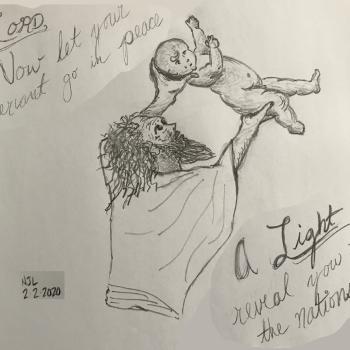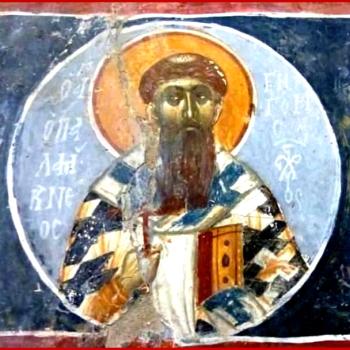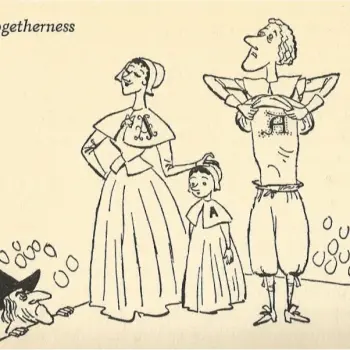Should it not be painfully obvious that what the pope intends is a merciful concession to help the radically darkened intellect struggle toward the light? Is it not plain that he is saying God is willing to take the slightest movement of the will toward grace as an opportunity for mercy, as Jesus did with the criminal? Could it possibly be clearer that he is not saying, "I confer my apostolic benediction on banditry and on tossing people down elevator shafts as the perfect will of God"?
"Be not afraid!" There was absolutely no reason to panic over this silly kerfuffle. At the end of day, what the pope was saying was not, "Condoms OK! The Church is reversing itself!" but that God is merciful and will take even the slightest crack in our armor against His grace as an opportunity to work mercy in our lives.
When human beings make even a clumsy and stupid effort toward virtue, then, in the words of Uncle Screwtape, "If only the will to walk is really there He is pleased even with their stumbles." As somebody who prefers my Church to be merciful, I'm grateful for a pope who understands mercy and shall give thanks for him -- among many other blessings and mercies we have received -- this Thanksgiving.
Mark P. Shea is a senior editor at www.CatholicExchange.com and a columnist for www.InsideCatholic.com, where these remarks first appeared. Visit his blog at www.markshea.blogspot.com.
Tom Hoopes
Pope Little Flower
"Name one major gaffe situation with John Paul II," a veteran secular Vatican reporter challenged a group of us outside a papal event in 2008. "You can't name one because there wasn't one. But Benedict has a new one every two months." He lays the responsibility at the feet of the press guys. Navarro Valls was exceptional; Father Federico Lombardi has too much on his plate.
I have a different theory.
I remember seven years ago as Pope John Paul II was fading fast, Catholic dinner parties eventually got around to the same worried conversation about who would follow him. At one such conversation, an agitated Catholic gentleman leaned forward and whispered: "Wouldn't it be great to have a pope who says stuff you can actually understand."
Well, now we know. It is great to have Pope Benedict XVI, who doesn't just "say stuff you can understand" but whose words teach you how to think. But it is also dangerous to have a lucid pope in the cyber age. He says things that shock the world.
In his new book, Pope Benedict speaks about his own pontificate as if he were the St. Thérèse of Lisieux of popes. "I understood that along with the great popes, there must also be little pontiffs who make their own contribution," he says.
He knows his gifts and he knows his inadequacies, he explains. He exercises the former (articulating truth, for instance) and skips the latter (which include spin-doctoring). As Father Raymond J. de Souza has argued, Benedict's "gaffes" always seem to net out as positives for the Church. The condom "gaffe," for instance, has lots of people talking about the very essence of the issue, even if they don't understand why.
God does amazing things with the "gaffes" of honest, diligent people who do their best.
Tom Hoopes, writer in residence at Benedictine College in Atchison, Kansas, is the former editor of the National Catholic Register and Faith & Family magazine.
Tim Drake
The Pope's Forest
The media's recent single-minded attention to Pope Benedict XVI's comments in Light of the World demonstrates what the popular Get Religion blog has long held. The press just "doesn't get religion." Their attention on one issue -- contraception -- exemplifies that they cannot see the forest for the trees.
Contraception is one -- and a very minor -- issue among many covered in the pope's interview-style book.
Much larger themes emerge . . . the forest, if you will. Not surprisingly, that forest is primarily, as has been the case throughout Joseph Ratzinger's entire life, the theme of living as if God doesn't exist. That problem, and the Church's response to it, dominates the book.
One surprise I discovered was how often the Holy Father uses the word new. It practically screamed from the pages at me.
To give you some idea of its prevalence, the word new or renewal is used approximately 150 times. Compare that to the pope's use of the word Christ (84) or Catholic (109) and you see how central it is.
As the supreme pastor, Pope Benedict speaks of how his trips and experiences of the universal Church show him that there is a "new beginning" present in the Church.




